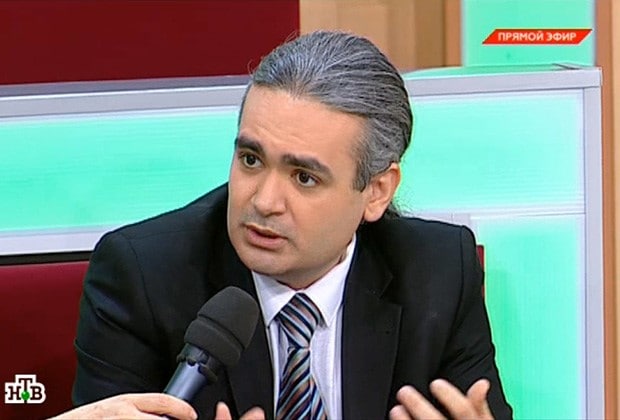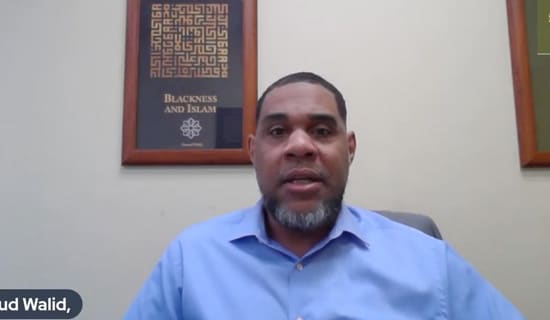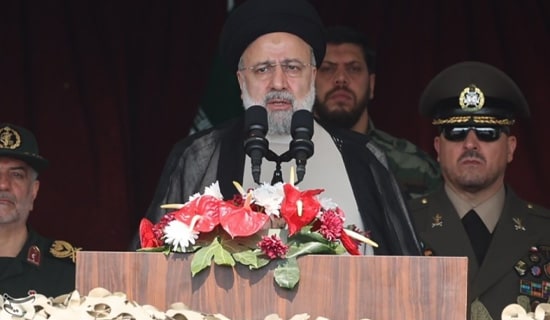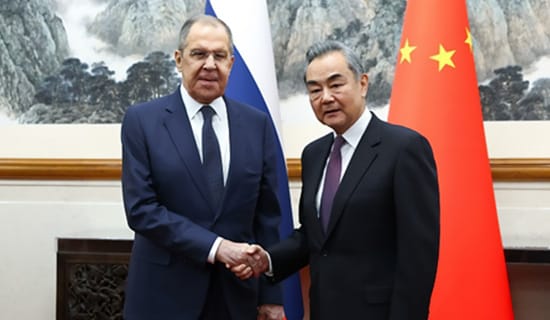A Moscow city court sentenced Russian dissident and anti-war activist Vladimir Kara-Murza to twenty-five years imprisonment on the charge of treason and association with undesirable organizations. The sentence was condemned by Western diplomats in Moscow, and in response, the U.S., Canadian and British ambassadors were summoned to the Russian foreign ministry and threatened with expulsion if they continued to meddle in Russia's affairs.[1]
Seventy U.S. legislators from both the Republican and Democratic parties wrote a letter to Secretary of State Antony Blinken that called upon the U.S. government to secure Kara-Murza's release. The letter read in part:
"Dear Secretary Blinken,
"We are writing regarding the unjust detention of U.S. Legal Permanent Resident and Russian dissident Vladimir Kara-Murza, who was recently sentenced to a 25-year prison sentence in Russia. It is our desire that Mr. Kara-Murza, who has been wrongfully detained by President Putin's regime for his anti-war speech, receive the official status of wrongfully detained under the Levinson Act (22 U.S.C. 1741 et seq.) and that the U.S. government use its resources, including those under the July 19, 2022, Executive Order, to free him."[2]
Within Russia, reactions followed ideological lines. MEMRI presents two articles commenting on these events by political scientists and journalistic heavyweights George Bovt and Gevorg Mirzayan. Bovt, writing under the constraints of today's Russia, voiced qualms about the verdict, while Mirzayan applauded the judicial decision. Both agree about one thing: the Russian government has decided to take the gloves off in dealing with political dissent. For Bovt, this recalls Stalinism; for Mirzayan, this policy in the midst of a war is long overdue.

Vladimir Kara-Murza (Source: Ura.ru)
George Bovt raised problems with the fairness of court proceedings against Kara-Murza including a conflict of interest involving the presiding judge. Bovt wrote:
"The Moscow City Court has sentenced oppositionist and journalist Vladimir Kara-Murza (recognized as an individual foreign agent) to 25 years in a strict regime colony in a case of high treason, cooperation with an undesirable organization, and the dissemination of misinformation about the actions of the Russian Armed Forces. Numerous journalists close to Kara-Murza, as well as representatives of several dozen foreign embassies, came to court for the verdict announcement. The proceedings in the Moscow City Court began in March and were held behind closed doors, since the materials of the criminal case are classified. How does one evaluate such a verdict?
"Such a brutal sentence received by the oppositionist Vladimir Kara-Murza, perhaps, is unprecedented in recent years. For example, members of the 'gang of Amazons' in the Rostov region, who were responsible for at least ten murders and about a hundred victims, were sentenced to a similar term not so long ago. In September 2022, Ivan Safronov, a former Kommersant correspondent and adviser to the head of Roskosmos, received 22 years, also for treason. In 2019, the same 22 years were handed out to the former head of the FSB Information Security Center's operations department, Sergey Mikhailov, on charges of collaborating with the FBI. In 2011, former SVR [Foreign Intelligence Service] Colonel Alexander Poteev was sentenced to 25 years for high treason, but was convicted in absentia for passing data on a group of Russian agents, including [Russian intelligence agent]Anna Chapman, to the United States.
"Kara-Murza's defense and supporters say that he was convicted solely for 'words', namely for criticizing the Special Military Operation [SVO] and discrediting the Russian army. On similar occasions, in the Stalin years, some cynically joked that 'for words' they give only ten years. It's kind of like 'no matter what'. And here - 25. Of these, for treason - 18. For participation in the activities of an undesirable organization — and, apparently, we are talking about Free Russia, registered in the United States in 2019, as well as the already defunct Open Russia — three years. And for the article about false information — seven years. In the Kara-Murza case, it is also noteworthy that aggravating charges gradually accumulated, while usually in similar cases all parameters of the accusation are designated almost immediately.
"Initially, the politician was arrested in April 2022, when for some reason he returned from the United States, where he has a residence permit and where his three children live. The reason for the detention was generally an administrative case of disobedience to police officers. Soon, the charge of discrediting the Russian army was added to it. The reason was the speech delivered by Kara-Murza on March 15, 2022 before members of the House of Representatives of the State of Arizona. According to investigators, he, 'acting on the motives of political hatred', disseminated 'patently false information' about the actions of the Russian army in Ukraine. We will not quote specific words and facts in order to avoid violating the Criminal Code of the Russian Federation. On the day of his arrest, the Ministry of Justice included the oppositionist in the list of foreign agent individuals. Then the charge turned into a criminal one. Kara-Murza never left the pre-trial detention center.
"An article about the activities of an undesirable organization was added only in July. Of the above two organizations, one ceased to exist, and Kara-Murza left the other a year prior. But the law in this case can be applied retroactively — going back three years. And only in October an article about treason was added to the collection of charges. According to the defense, it was leveled on the basis of three public speeches by Kara-Murza criticizing Russian authorities — in Lisbon, Helsinki, and Washington. It is not very clear why they waited that long. Is it a political go-ahead? It was not about any state secrets. However, these speeches contained very harsh words about 'state terror' and, of course, a whole set of prohibited epithets in relation to the SVO. All this was, of course, prior to his return to Russia, which perhaps was perceived by authorities as a defiant challenge, just like the return of [Alexei] Navalny (included in the Rosfinmonitoring list of terrorists and extremists), although there were quite unambiguous signals for him not to do this.
SUPPORT OUR WORK

"In this sense, the example of Kara-Murza is already a recurring signal to all non-systemic oppositionists: they are saying that there will be no mercy, nor games of ostentatious nobility. And the outrage of foreign embassies is not that immaterial, but rather provides extra proof to the loyalists that the condemned was actually engaged in treason. For example, British Ambassador Deborah Bronnert not only attended the trial, but also made a statement on the steps of the Moscow City Court after the verdict was announced, calling for the release of a British citizen tried in this case.
"The circumstances of the case, we repeat, are classified. However, earlier the defense drew attention to the fact that the presiding judge, Sergei Podoprigorov, is a suspect in the 'Magnitsky list', which Kara-Murza largely compiled, lobbied for, and ensured its adoption by U.S. Congress. The defense twice demanded the removal of the judge on the basis of a conflict of interest: allegedly, he and a number of other judges in 2017 applied to the U.S. Treasury with a request to be removed from [the list of individuals under] restrictions. However, it is unlikely that even a challenge, given the current political context, would lead to a reduced sentence.
"The adoption of the 'Magnitsky Act' is considered by many to be one of the main achievements of Vladimir Kara-Murza as a politician, [which he] promoted along with Boris Nemtsov, who was murdered in 2015. But the Magnitsky Act was adopted back in 2012. Perhaps the current harsh sentence was also a response to similar activities in relation to the compilation of current sanctions lists. These are considered part of the 'West's economic war ' against Russia. And if so, then the sentence is akin to a 'court martial.'"[3]
 |
|
George Bovt (Source: Grozny.tv)
Meanwhile, Mirzayan contended that Kara-Murza openly flouted the law and that the 25-year sentence represents leniency, considering the cumulative maximum sentence he might have received. Mirzayan argued:
"The time has evidently come. On April 17, 2023, the Moscow City Court pronounced the sentence of activist Vladimir Kara-Murza (whom some call a journalist, oppositionist, politician and other terms). He was sentenced, in effect, to the highest possible punishment — 25 years in a maximum-security penal colony.
"Supporters, accomplices and simply sympathizers immediately began to say that it is now the era of 1937 [Stalinist terror]. The 'journalist' received a sentence that is not even handed out to rapists and murderers, whereas he was sentenced not for rape and murder, but for discrediting the SVO [Special Military Operation in Ukraine]. That is, simply put, for his anti-war views and opposition activities. This thesis is being actively promoted by Russian opposition activists and foreign diplomats (40 in number, from 25 different countries, were present in the courtroom hearings when the verdict was pronounced).
"'This decision is an attempt to stifle dissent in the country and to pointedly demonstrate what happens to people who dare to disagree with the policies of the Russian government,' declared the U.S. Embassy, which added that Kara-Murza is a 'truth-telling patriot.'
"'A criminal case was brought against him for speaking out courageously against Russia's invasion of Ukraine,' said the British Ambassador to Russia, Deborah Bronnert. The trial was used 'to exert pressure on activists, human rights defenders and anyone speaking out against Russia's illegal aggressive war against Ukraine,' reads the European Union's statement.
"Actually, this is a conflation of concepts, that only those who: a) have not read the Criminal Code; and b) do not know what Vladimir Kara-Murza was actually doing, can fall for. The thing is that Kara-Murza was charged under three articles: 284.1 (engaging in the activities of a foreign or international non-governmental organization, in regards to which, a decision was passed to declare its activities undesirable in Russia), which in his case, entails up to four years imprisonment; 270.3 (in short, discrediting the armed forces) (up to 10 years imprisonment); and the most important article, 275 (treason), with a maximum prison sentence of 20 years.
"Kara-Murza was given a well-deserved quarter of century as the sum total of all three aforementioned articles. Treason is the most important motive for passing such a severe verdict. Moreover, his supporters and sympathizers cannot even cry that this accusation was made up, after all, Kara-Murza was engaged in state treason quite openly. Simply put, he regularly lobbied for the introduction of Western sanctions against Russia and was also actively involved in the process of compiling Western sanctions lists.
"That is, in the wording of Article 275 of the Russian Criminal Code, he was engaged in the provision of 'financial, logistical, advisory or other assistance to a foreign state, international or foreign organization, or their representatives in activities targeted against the security of Russia.'
"In this case, it was logistical and advisory assistance. 'For years this man has been demonstratively doing what constitutes both the spirit and the letter of Article 275 of the Criminal Code, getting paid for it and being proud of it,' said [state-controlled outlet] RT head Margarita Simonyan. He was proud of it, his supporters were proud of it, and his employers, i.e., the very same foreign diplomats and politicians who are now defiantly demanding his release (thereby effectively confirming his guilt) were proud of it.
"The Foreign Ministry's reaction to this lobbying was harsh. 'Traitors and traitors, modern-day Vlasovites and Banderaites [supporters of Nazi collaborators Andrei Vlasov and Stepan Bandera], who are applauded in the West, will get what they deserve. Foreign masters won't help them avoid just punishment,' [Russian Foreign Affairs Official] Maria Zakharova explained, 'Any actions on part of the U.S., Britain, and Canada, and other unfriendly countries that have joined the 'rabid Russophobia [politics]' of the Anglo-Saxons, aimed at fomenting discord and hostility in our society, will be curbed in the firmest way, and the diplomats involved in this subversive work will be expelled from Russia.'
"Provided that Kara-Murza's Western employers want to get involved in his fate in any way, they can look into other matters, such as discussing his [prisoner] swap options.
"Russia has experience in swapping traitors (the same Igor Sutyagin[4]) for its spies and may at least consider a second attempt at it. This approach, naturally, has its disadvantages: potential traitors may believe that they are not disposable tools for their employers, but a valuable asset that will be rescued and extracted from Russia. But something tells me that no one will be extracting Kara-Murza. No one in the West needs him and he will be much more useful in the status of 'political prisoner,' i.e., a sort of symbol and pretext for sanctions.
"The only question is, will there be more of these symbols in Russia? A number of Russian experts express the hope that Vladimir Kara-Murza will be only the first swallow. It's the first example (in virtually a year of hostilities) of a state beginning to act within a military logic, which implies zero tolerance for traitors — not dissenters — but precisely those who blatantly betray the country and take pride in their actions, as well as the fact that they go unpunished.
"'The patriotic camp' has been observing this mess for years with furious bewilderment and for years also demanded that the state at least respect its own Criminal Code,' said [Russian journalist] Margarita Simonyan, 'Before my eyes journalists have been asking the corresponding questions of the top leadership, receiving from some responses along the line of 'We're not in China,' and from others, 'It's not time yet'. The time has obviously come.'"[5]

Gevorg Mirzayan (Source: Lenta.ru)
[1] Firstpost.com, April 19, 2023.
[2] Wicker.Senate.gov., April 20, 2023.
[3] Bfm.ru, April 17, 2023.
[4] Igor Sutyagin, an arms control and nuclear weapons expert convicted of treason, was exchanged for Russian spies in 2010 after spending 11 years in prison. His trial was criticized by the European Court of Human Rights.
[5] Russian.rt.com, April 18, 2023.




